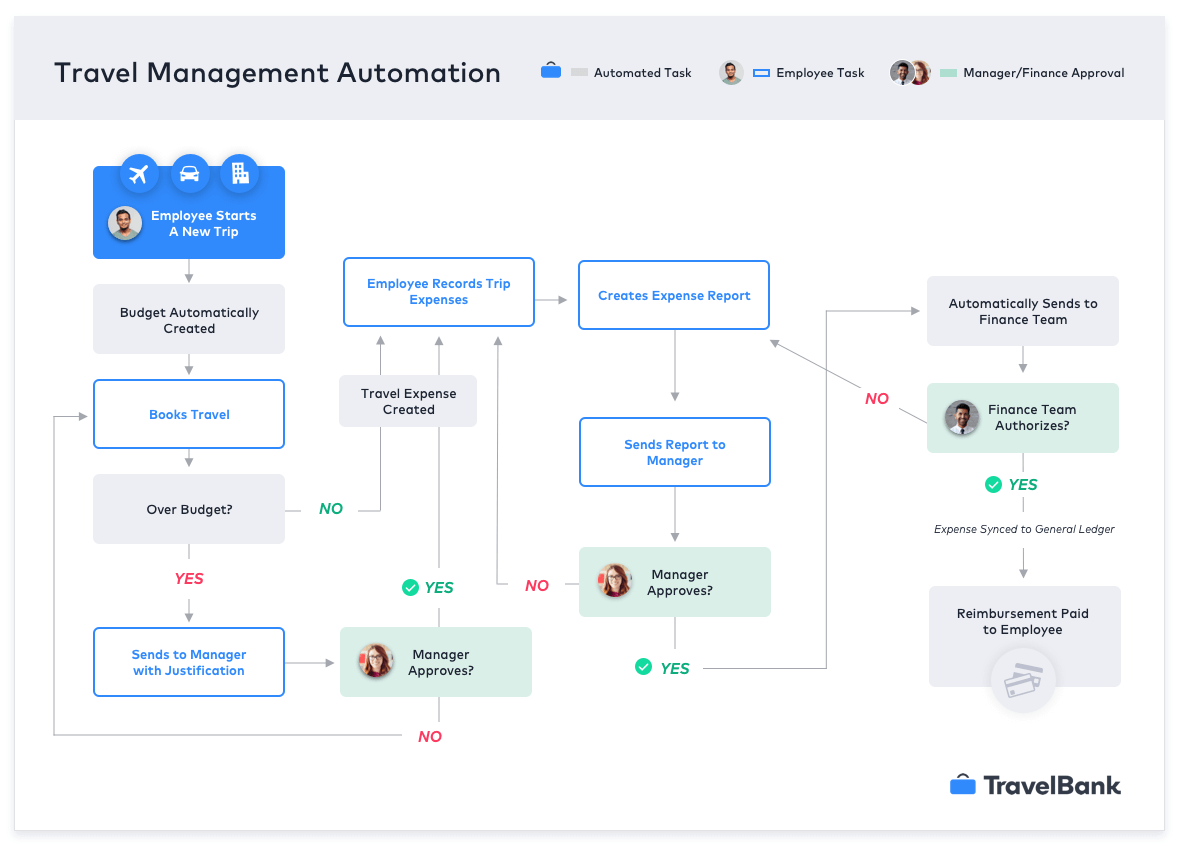This is the fourth post in our 6-part series based on a white paper with Harvard Business Review Analytic Services in association with U.S. Bank that examines the growing use of automation to manage corporate T&E.
Anyone who doesn’t have an executive assistant is eagerly awaiting the day when AI will flawlessly take care of their travel arrangements and expense reports! While that’s probably a few years off, the current generation of T&E tools can eliminate frictions and overhead. Here are three ways to infuse AI in T&E management in 2024.
>> Related: 4 Financial Trends for 2024 and What CFOs Need to Know <<
Intelligent Algorithms
Your T&E booking tool can and should nudge or incentivize employees to optimize their itineraries. For instance:
- If multiple employees from the same department are attending the same event, a system with intelligent algorithms might notice the pattern and suggest a group booking.
- The system could recognize a situation where several employees are flying to the same city at different times, highlighting an opportunity to consolidate car rentals by coordinating arrival schedules.
- The system can flag reservations that don’t use a preapproved hotel chain or airline, or that exceed daily allowable rates for that destination.
>> Related: Introducing Group Travel – One Platform for Team Travel Coordination <<
Classifying and Clustering Data
At an organizational level, automation can categorize expenses and identify anomalies, such as when an expense is out of range in terms of the location, the vendor, the time, and/or the person. Machine learning streamlines expense processing by isolating clusters and classifying purchases, ultimately reducing errors and saving time. Human workers don’t have to go through a list of items and then classify them because the machine helps with identifying these anomalies. (If this sounds familiar to the fraud detection you enjoy at your personal bank, you’re not wrong.)
Chatbots as Preventative Controls
Rather than waiting to flag violations after they’re reported, consider what preventive controls could help enforce corporate policies before an expense is incurred. With the advent of large language models, chatbots are becoming much more accurate and effective. Older generation chatbots didn’t have the capability to explain context, but now, with generative AI, they’re able to provide better answers.
Chatbots could advise employees on spending limits and even make compliant recommendations for local dining, car services, and cheaper travel dates. Or employees could confirm policies instead of badgering HR, Finance, or their manager (or worse, booking something out of policy).

Read the entire series with Harvard Business Review Analytic Services >




